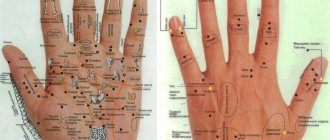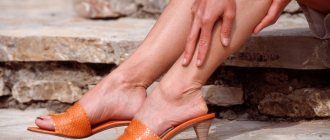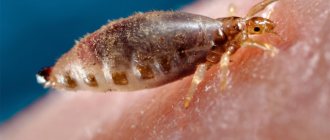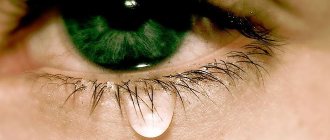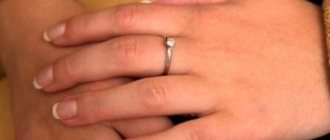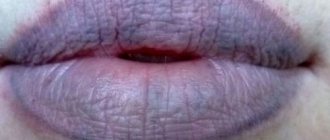Pathological conditions developing in the lower extremities bring people great inconvenience. They range from normal discomfort to significant limitations and, in some cases, complete loss of motor function. Any of these negative conditions can significantly reduce a person’s quality of life and lead them to nervous tension or depression. When the legs below the knees ache or itch, the causes of the misfortune become the main problem of interest to a person at the moment.
Dermatological pathologies
Primary or secondary pathology of the dermis is the cause of the rash under the knees:
- Atopic dermatitis is an inflammatory disease that has a hereditary predisposition; the leg and elbows scratch until they bleed.
- Contact dermatitis – The leg will itch if the body has an allergic reaction to an irritant.
- Psoriasis - pronounced redness appears, overgrown with whitish scales. Small rashes merge into a continuous spot that itches and peels. The cause of the pathology is decreased immunity, nervous shock, and hereditary predisposition. The leg below the knees and other parts of the body become repulsively unattractive and make you want to hide.
- Erythema induratum is one of the types of tuberculosis of the epidermis, aggravated by bluish-red dense nodules on the legs. The leg and knee are swollen and itchy.
- Fungal and bacterial diseases can also cause the desire to itch below the knees.
Diagnosis and treatment
To find out why this unpleasant symptom occurs and how to treat it, you should consult a dermatologist. The doctor will examine the legs under a magnifying glass and, if necessary, will take a section of skin and scales for analysis. You may have to visit specialized specialists - a nephrologist, gastroenterologist, allergist, hepatologist, neurologist for further examination.
You can make your life easier by regularly lubricating your skin with moisturizer - this will reduce itching.
There are other tips that can be applied before or during treatment:
- Apply lotions with cool water to itchy areas;
- do not wear things, underwear made of synthetics, hard fabrics that irritate and scratch the skin;
- refuse allergenic cosmetics;
- review the list of medications taken to check for itching as a side effect;
- Do not abuse water procedures with hot water.
Even when your feet are very itchy, you should not allow scratching to the point of blood or scratches - a fungal or bacterial infection may appear in their place, and the problem will worsen.
Causes of metabolic itching
A gene deformation that blocks the proper functioning of enzymes is the cause of metabolic disorders: either a lot of them are produced, or a deficiency or inactivity is detected.
This leads to the development of diseases, the symptom of which is a rash under the knees:
- renal failure;
- photodermatitis (porphyria) – a reaction to sunlight, similar to a burn, then the dermis peels off;
- thyroid diseases;
- anemia of various types: the leg goes numb, cramps occur, a feeling of goosebumps.
Diseases of internal organs
Often a rash under the knees accompanies diseases of the gastrointestinal tract, liver, kidneys, and reproductive organs. The symptom can be a harbinger of a tumor of internal organs or melanoma. To prevent complications, it is important to consult a physician in a timely manner.
A rash under the knees is the primary symptom of developing cirrhosis, spreading to the calves, knee, interdigital folds of the feet, and soles. With hepatitis C, the leg peels from the knee and below.
Liver and kidney failure is the cause of a painful, debilitating condition caused by the irritating effect of the nerve endings by bile acids. In pyelonephritis, this is the result of toxin breakdown products.
Treatment with drugs
Drug treatment is aimed at alleviating the condition, that is, relieving itching. Drugs prescribed:
- antihistamines;
- sedatives;
- anxiolytics.
are also indicated :
- baths with various fillers;
- electrosleep;
- cold and hot shower;
- sea baths.
Itchy places on the legs need to be treated with special preparations:
- salicylic acid (2%);
- tincture of diphenhydramine or menthol;
- carbolic acid.
After wiping the skin with disinfectant solutions, you can apply antipruritics - creams, ointments, mash, powders (Psilo-balm, Bepanten, etc.).
For unbearable itching that cannot be relieved by anything, novocaine blockades are prescribed.
Neurogenic pathologies
A rash under the knees does not always occur from allergies, parasites and external irritants. Neurodermatitis “due to nervousness” is a common cause of discomfort.
Here are diseases that originate from problems with the nervous system:
- Prurigo - prurigo. Itchy blisters measuring 3-10 mm appear in paroxysms on the extensor surfaces; when scratched, the leg below the knee becomes covered with unsightly crusts. The disease is preceded by a deterioration in general condition and elevated body temperature. The acute form of prurigo can be very itchy and bothersome for 2 weeks to 4 months. It especially annoys young children, they become capricious, and the children’s nervous system is disrupted.
- The rash may be the beginning of chronic lichen - a constant desire to itch, friction in one place leads to the formation of a thickened crust.
- Lichen planus is most often localized below the knee: on the lower leg, foot, ankle joints, between the phalanges of the fingers. The foot suffers from wearing shoes, it sweats, and it pinches a lot.
- In urticaria, the lesions are large and blurry. The reason is allergic factors.
- Cholestasis is the sensitivity of the liver to changes in hormonal levels, it provokes minor redness, the knee begins to itch more in the evening hours.
Folk remedies for itching
If for some reason you cannot get to the doctor, you can try the following folk recipes:
- You will need: valerian root, burdock flowers, elecampane, burdock root, violet flowers, clasp leaf, licorice root. How to do it: mix the plants in equal parts and grind in a coffee grinder. 2 tbsp. powder, pour 500 ml of boiling water and place in a water bath for 5 minutes. Remove and leave for 12 hours. Drink 1 tbsp. morning and evening for 3 months.
- For an elderly person. Finely chop the Vinca minor leaves. 1 tbsp. raw materials, brew 200 ml of boiling water. Keep on low heat for 10 minutes. Cool and pass through a sieve. Add the product to the water while taking a bath. You can also use a lotion product.
- Brew 1 tbsp. lemon balm 200 ml boiling water. Drink instead of tea 2 times a day for a month.
- Lubricate the affected area with sea buckthorn or castor oil.
- Juniper bath. Add 3 tbsp to the bath. liquid juniper or 2 tablets of dry.
- A mixture that also helps with itching caused by eczema or psoriasis. Take the berries and leaves of black nightshade, grind into a puree and combine with vegetable oil. The mixture is applied to itchy areas. However, be aware that nightshade is quite toxic, so under no circumstances take drugs based on it orally.
- Boil burdock root in water for 30 minutes. Then pound it and make lotions from the pulp.
- Take 2 tsp. fresh leaves and sprigs of marjoram, brew with a glass of boiling water. Leave to infuse for several hours. The product needs to be applied to the surface of the feet.
- Make flour from dill seeds. Take 1 gram of powder orally.
- You can also dilute vinegar in water (1 to 3) and treat itchy areas on your legs with the solution.
READ ALSO: How to moisturize problem skin: five rules | Clear skin without acne
Diabetes
Itchy shins are one of the first signs of diabetes. If the legs below the knees itch with diabetes, the reasons may lie in a violation of carbohydrate metabolism, the accumulation of breakdown products of disturbed metabolism, and changes in the structure of ichthyosis.
Sometimes diabetic dermopathy develops: the leg on the shins becomes covered with red-brown papules. Over time, they turn into red spots that make you want to itch.
The dermis reacts with the appearance of painful formations on the legs, which indicates decompensation of the recovery process - the body can no longer cope with metabolic disorders on its own and requires insulin-containing maintenance therapy.
Why is itching at night physiologically possible?
Before understanding the reasons why the body itches in different places, it is necessary to understand what contributes to the occurrence of this phenomenon at night. There are several reasons for this:
- At night, body temperature is higher. Usually the whole body is covered with a blanket at this time, which helps maintain body temperature and increase it. This leads to higher skin sensitivity.
- Due to the dilation of blood vessels, blood circulation is significantly enhanced. Because of this, metabolism in the body occurs faster, which leads to a faster release of various substances into the blood. They become the reason why the body itches at night.
- Itching at night is often caused by external irritants. These could be cosmetics, household chemicals, certain clothes and other factors.
- Psychosomatic reaction. This is the influence of some psychological factors on physiological processes. As a result, being alone in the evening, interacting with certain people, watching TV and other events can lead to your whole body itching before going to bed.
Cholestasis
An unpleasant sensation that appears on all parts of the body in the evening and at night may be due to a malfunction in excretion. In this case, the process of removing metabolic end products from the body is disrupted. As a result of such changes, an insufficient amount of bile enters the duodenum.
The condition is accompanied by the following changes:
- itching of the skin;
- pain in the lumbar and chest areas;
- dark-colored urine;
- skin peeling and pigmentation;
- liver enlargement;
- fragility of nail plates;
- light cal.
Insect bites and parasite activity
Severe body scratching at night is a reaction to insect bites. Papules form on the surface of the skin. Itching is caused by saliva, which contains irritants, toxins and poisons. As a rule, these symptoms appear after bites:
- mosquitoes;
- fleas;
- bedbugs
Itching is also observed when parasites develop inside the body. Helminths come out at night and lay eggs in the folds of the anus. This is the area that starts to itch.
Allergic manifestations
The development of an allergic reaction is possible upon contact with various substances. They can be present on clothing, laundry detergent, personal care products and bedding. As a rule, this condition is accompanied by itching. The following changes are also possible:
- rash;
- redness and increased dryness of the skin;
- swelling.
Allergies can manifest themselves under the influence of not only external irritants, but also internal ones.
It is often observed when certain substances penetrate into the body along with food, medications and inhaled air. In this case, the clinical picture is more pronounced. A number of changes are observed:
- increased nervous excitability;
- intense sweating and lacrimation;
- runny nose;
- cough;
- indigestion.
Vitamin D deficiency
Itchy skin in winter or spring is often associated with a deficiency of vitamin D. This is one of the basic substances produced in the body. It is responsible for the formation of bone tissue, optimization of the nervous system and immunity, and regulation of hormones.
Vitamin D also has an anti-inflammatory effect. To prevent its deficiency, which is associated with a lack of sunlight, a course of vitamin preparations is prescribed.
Kidney diseases
If the kidneys do not work properly, harmful substances cannot be removed from the blood and leave the body along with sweat, causing a symptom in which the skin is very itchy. A similar effect is observed in all cases of severe renal failure, especially if hemodialysis is performed.
Pregnancy
Pregnant women have an itchy body without rashes due to hormonal changes. If there are no other symptoms, there is no need to worry.
During the last trimester, pregnant women often experience itching of the skin on the abdomen and body, which is provoked by stretching of the skin, so the unpleasant symptoms disappear after childbirth, as the abdomen shrinks.
Cholestasis associated with impaired bile metabolism can also be a cause. In the third trimester, the effect is more intense.
Menopause
Itching during menopause is associated with changes in the body's hormonal balance. Due to the cessation of menstruation, the level of estrogen and progesterone changes, which explains the occurrence of unpleasant symptoms. A characteristic symptom may be that your back itches for no apparent reason.
Reaction to medications
The cause of body itching without rashes may be an allergy to medications. It is a type of standard allergy. Requires examination and replacement of the drug.
The participation of a doctor is necessary in this case, since first of all you need to understand whether itching is a side effect or an allergic reaction.
Skin diseases
The cause of such sensations at night is often skin diseases. Possible pathologies:
- scabies. The disease is caused by scabies mites. They feed on epithelial particles and secrete waste products that irritate the skin. These parasites are most active at night. With the development of this pathology, a person experiences dry, cracked skin with whitish lines. A rash appears, peeling begins, crusts form;
- psoriasis. A dermatological disease manifested by a localized rash and itching;
- dermatitis. An inflammatory process that begins under the influence of unfavorable factors;
- eczema. Inflammation of the skin, accompanied by rashes, peeling and burning;
- lichen. Refers to diseases caused by fungi, viruses and bacteria. A rash, blisters or ulcers appear on the epithelium, crusts form;
- seborrhea. This disease is characterized by a decrease or increase in the activity of the sebaceous glands. As a rule, pathological changes are observed in the head area. Unpleasant symptoms worsen at night.
Incorrectly selected cosmetics
Often the cause of body skin itching, which is not accompanied by additional symptoms, is an incorrectly chosen cosmetic product. Typically, such products contain a high content of dyes and flavors.
This happens when the cause of irritation is hygiene products with fragrance.
Psychological factors
An itchy body in a dream is often a consequence of stress or severe nervous shock. Similar problems are also observed when the biological clock goes wrong, as well as when climate conditions change, watching TV for a long time, or after an unpleasant conversation with loved ones.
Under the influence of these factors, there is a disruption in the functioning of the nervous system. The body itches even during the day, but due to the presence of distractions, the unpleasant symptoms are invisible. At night, these sensations intensify.
Dry skin on feet
In elderly patients, the legs below the knees are very itchy because the blood circulation is insufficient to saturate the cells with moisture. The dermis became thinner over time, and sweating increased. The result is an imbalance between filling and moisture consumption.
A sign that additional hydration is required is retraction, flaking of the skin, cracks and an uncontrollable urge to itch.
The cause of dry feet and heels is dry eczema. The disease progresses slowly, periodically exacerbating, and requires urgent medical intervention.
Itchy feet below the knees in winter
People with a dry type of dermis notice seasonal manifestations of symptoms: in winter, under the knees on the folds, it itches more than at other times of the year. The reason is low humidity, as well as increased loss of fluid. Winter exacerbations often affect older people with sagging skin.
Another reason why legs below the knees itch is close contact with synthetics that rub, or tight pants that interfere with normal blood circulation.
Prolonged hypothermia causes hypoxia, the knee and the area below it begin to itch until the body warms up in the warmth.
Treatment and recommendations
When the reason why the feet itch at night or other areas of the lower extremities is established, a course of treatment can begin, which will differ depending on the pathology found in the patient.
- A dermatologist will tell you in detail how to get rid of itching in the heels of your feet due to allergies, but you can apply pathogenetic treatment in the form of anti-inflammatory ointments containing glucocorticoids: Celestoderm with Garamycin, Elok.
- If the reason why your heels itch at night is insect bites, it is necessary to take a number of measures to eliminate parasites indoors. If a person is bitten by a mosquito, it is enough to use any ointment against mosquito bites, which will relieve itching and relieve inflammation. In the case of bed ticks and fleas, antiparasitic cream and antiallergic drugs (Zodak, Suprastin) are used, and water procedures are excluded during treatment.
- For mycosis, when the feet itch at night, depending on the depth of the lesion, external and internal antifungal agents are used, such as: Griseofulvin, Lotseril, Fluconazole. The patient is also recommended to wear shoes made of genuine leather that do not restrict movement.
- Xerosis is most often a symptom of another disease that causes decreased sebum production. But there are cases when the pathological condition is caused by the use of externally drying compounds. In order to correct the situation, it is necessary to restore the hydrolipid mantle of the skin. Lotions containing ceramides (CeraVe. Avene) can cope with this.
- In the case of an oncological, neurological, or endocrinological disease, first of all it is necessary to contact a specialized doctor and begin treatment of the underlying pathology. It is quite possible that measures to eliminate dry feet will not be necessary. If the skin of your legs itches at night and this interferes with sleep, you can use gels and creams that relieve itching.
Source: VseProZud.ru
Itchy skin on legs at night and in the morning
It has been noticed that in a too warm bed, the itching intensifies in the evening and in the early morning hours. Neurons operate in a certain daily rhythm.
Late in the evening and early in the morning, a nocturnal release of mediators occurs, the increased body temperature of the sleeper becomes an “accomplice” to the burning sensation, the knee tingles, tickles, the person wakes up poorly rested and irritated.
Nighttime scratching is typical during menopause in women - it is alarming due to hormonal imbalance. In case of liver diseases, poisoning of the body with toxins becomes the reason why the knee begins to itch, and then the whole leg.
Scabies and pediculosis are the cause of irritation, scratching occurs all over the body. An allergic reaction to bites is itching. It intensifies when the patient goes to bed.
When is it necessary to see a doctor?
If you have itchy skin from the feet to the knees, you should contact:
- pediatrician - if the child has itching for no apparent reason;
- therapist, for initial diagnosis;
- an allergist, in the presence of severe allergic reactions;
- a dermatologist - if there is a suspicion of skin diseases;
- psychotherapist - to correct the emotional sphere;
- to a vascular surgeon – in the presence of varicose veins;
- gastroenterologist - to exclude stomach diseases.
If such reactions occur, especially during pregnancy, it is recommended to visit a therapist; perhaps during the examination, he will refer you to a more specialized specialist.
There are a number of alarming symptoms that require the attention of a specialist and are fraught with serious complications. You should consult a doctor if:
- suppuration of scratches, especially in combination with an increase in body temperature;
- the appearance of pathological formations on the legs: plaque, blisters, blisters, scabies;
- itching persisting for more than three days without noticeable improvement.
- accompanying itching with other disorders of systems and organs.
Why your feet may itch during pregnancy
Pregnant women experience itching in their legs below the knee for several reasons:
- cholestasis, itching of pregnancy;
- violation of water-salt balance;
- skin diseases: fungus, dermatosis, eczema, which cause redness, peeling, affects the elbow area, knee;
- allergic reaction;
- increased sweating;
- hepatitis or diabetes.
Women who are pregnant should report symptoms to their doctor immediately. Early identification of the cause will allow adjustment of maintenance therapy.
Itching after shower
If your skin loses too much of its natural protective layer during bathing, it can become dry and itchy.
Causes
Too often hot showers and excessive use of soap, which strip the skin's protective oils and natural oils.
Try using warm rather than hot water. Limit the amount of soap you use.
Fungal ringworm is a rash similar to ringworm inguinal photo
Ringworm, also known as tinea groin, is a fungal infection of the skin. Most often it occurs on the inner thighs, genitals or buttocks, and is a large red or brown rash that is itchy and itchy.
Cause
Fungal growth is caused by moisture and heat.
Antifungal drugs are used for treatment, most often in the form of ointments.
For the purpose of prevention, you should avoid sweating in the groin area (you should wear light and comfortable clothes) and use antifungal soap.
Which doctor should I contact?
Why a leg, knee, or shin itches is a difficult question for doctors; these manifestations are often combined with symptoms of other diseases. The first person to contact is a family doctor who is well acquainted with the patient’s medical history.
This will be followed by an appointment with a dermatologist, who, if necessary, will give a referral to a neurologist, oncologist, gynecologist, endocrinologist or gastroenterologist. Children will definitely visit a pediatrician first. Urologists and andrologists will help you figure out why the legs below the knees itch in men.
You may also need to visit a sex therapist or venereologist.
Cause of itching of the lower extremities in children
Young children often complain of the development of itching in the lower extremities. This symptom may be associated with:
- An allergic reaction of the body to a certain irritant (insect bite, eating inappropriate vegetables, fruits or sweets). In order to confirm or refute the diagnosis, it is necessary to undergo a special allergy test.
- Development of eczema. The child may be genetically predisposed to developing this disease. An itching sensation may occur under the kneecap and in the crook of the arms and face.
After studying the information about why their feet itch, patients are not recommended to try to choose the appropriate treatment for themselves.
Therapy can begin after the diagnosis is clarified. To do this, you should consult with a doctor in person and, if necessary, undergo a comprehensive examination. During treatment, medications (taking sedatives and antihistamines), traditional methods of therapy, and physical therapy can be used.
Diagnostics
What to do if your legs itch below the knees can be determined by timely diagnosis.
When visiting a doctor, a number of measures are taken to classify the disease:
- The patient's complaints are listened to. The conversation guides the doctor in the characteristics of the disease, its individual manifestations, and helps to find out what causes the disease.
- A visual and contact inspection is carried out.
- A referral is given for laboratory diagnostics, which includes:
- clinical tests of urine, blood, feces for I/g;
- histological examination of tissues;
- blood chemistry;
- diagnosis of parasitic infestations;
- scraping for scabies mites;
- tests to identify allergens.
Other symptoms
In late pregnancy, a woman may experience itchy feet. Itchy skin on the legs most often appears in the evening. This is due to intense weight gain, stretching of the epidermis, and changes in hormonal levels. The reason may also be psychosomatic. If the skin does not itch too much, there is no need to worry, this is completely normal.
If the itching in the legs intensifies, and manifestations such as rashes, hyperemia and suppuration are present, then you should think about dermatitis. Allergies to alcohol, food, household chemicals, and clothing can stimulate the manifestation of this chronic disease. Fungal infection also causes allergic reactions. The fungus can enter the body through mechanical damage to the skin, for example, when the legs are constantly itching, scratching appears until they bleed, which subsequently develop into deep wounds. Through damage there is a risk of secondary infection. The lower legs itch in people prone to vascular diseases. Middle-aged and elderly people are at risk.
Treatment
A special remedy for eliminating scabies that would relieve symptoms has not yet been invented.
There are many chemical substances in the human body that transmit signals at the cellular level, but there is no single mediator that would be responsible for the mechanism of the onset of the disease. Therefore, treatment for each patient is considered separately.
Drug treatment
The cause of the disease is determined by a dermatologist. Only he will tell you what ointment to apply to parts of the body, what medications to take. Some patients are helped by local anesthetics and moisturizers.
If conventional care products fail to relieve the unpleasant symptoms and the skin on the legs itches, they resort to drug therapy.
The doctor who must make the diagnosis will write a prescription for glucocorticoid ointment or cream. Pastes based on tacrolimus and pimecrolimus are also effective. These drugs can be applied even to children.
Depending on the cause of itching of the legs below the knees, antihistamines, antibiotics, enterosorbents, and sedatives are prescribed.
Physiotherapy and psychotherapy
Modern treatment protocols allow treating itchy skin on the legs below the knee with phototherapy. Ultraviolet rays suppress local immunity and reduce inflammation.
The use of special UVB lamps in combination with the intake of a photoactive substance can reduce discomfort and increase the sensitivity threshold of nerve fibers. The procedure can be performed at home, saving money on visiting a spa salon and a dermatologist.
Psychological factors influence the course of any human illness. If we take a deeper look at the symptoms, the reason why the legs at the bottom of the knees may itch becomes visible. These are stressful situations: psychological trauma, fear, excitement, depression, anxiety.
They cause accompanying changes: sweating, changes in blood circulation, irritation. Psychotherapy is aimed at equalizing the emotional state of the patient. It works to prevent scratching and relieve depression.
Specialists change the patient’s behavior: they relieve stress, replacing it with positive emotions. Methods of relaxation, imagination, hypnosis and meditation are effective.
ethnoscience
Grandmother's healing remedies are an alternative to medications, but they can only be used with the permission of a doctor.
What will help soothe lesions on your legs at home:
- baths with baking soda;
- lotions, oatmeal baths;
- salty water;
- soybean oil;
- chamomile, calendula, lavender.
Other therapies
The following have a beneficial effect on problem areas of the body:
- hydrotherapy: taking various baths using herbal remedies, minerals, mineral water; half-baths, in which the leg is immersed up to the knee;
- heat therapy: procedures with therapeutic mud, ozokerite applications.
- laser therapy;
- sulfur and radon baths;
- cryotherapy.
Such procedures are especially effective for eczema, when the leg is immersed up to the foot, and whirlpool hydromassage works.
Useful tips
To reduce pain under the knees on the inside, use:
- occlusive bandages on the knee , shin, which do not allow manipulation of the affected epidermis;
- lotion with 1% menthol solution;
- If it starts to itch severely and there are no medications, put ice on it.
Legs itch at night: pathological conditions
Severe itching on the legs below the knees, especially at night, can be an indirect sign of a serious disease that only a doctor can detect. There are a number of diseases in which the symptom in question is observed.
Allergy
When eating or using externally a product containing an allergen, you may experience itching in the legs as a reaction. When trying to scratch the skin, bright red stripes appear with an increase in local temperature. Common allergens are: tree pollen, citrus fruits, perfume components, some flowers. Often an allergic reaction in people occurs in response to excessive consumption of alcoholic beverages or fast food, sweets with sugar substitutes.
Xerosis
Xeroderma is a pathological skin condition in which the sebum production is insufficient to provide adequate hydration to the skin. Sebum is a secret secreted by the sebaceous glands and is extremely important for maintaining an adequate acid-base balance of the skin. In addition, it protects it from aggressive factors, including infectious ones. As a result of a lack of sebum, the stratum corneum thickens, resulting in flaking and itching.
Cholinergic urticaria
This disease is classified as an autoimmune allergic dermatosis, which is characterized by hypersensitivity of the body. It appears as a cluster of small blisters on the skin of the legs, arms, and body, which are very itchy and tend to spread. In parallel with the rash, general symptoms occur: nausea, vomiting, hypersalivation (salivation).
Hodgkin's lymphoma
Lymphogranulomatosis or Hodgkin's disease is malignant and affects organs that contain lymphoid tissue. Hodgkin's disease is diagnosed and treated by an oncologist. Common symptoms of this pathology are chills, sweating and itching of moderate or severe intensity. Patients complain of itching of the feet at night and throughout the day. Itching can also affect the lower legs.
Infections and parasites
Possible infectious diseases that cause itchy feet include: scabies, mycosis, bacterial infections and HIV.
- With scabies, papules and scabies burrows typical for this disease appear, indicating subcutaneous movement of the parasite. The typical location of scabies mites on the legs is the spaces between the toes, where itching bothers a person. With secondary infection with pyogenic bacteria, superficial or deep pyoderma occurs (ulcers with yellowish exudate).
- If your legs itch below the knees, the reasons in the evening may be of fungal etiology. Dermatomycosis and onychomycosis of the feet are the result of the influence of many factors that led to infection of the skin of the feet by fungi of the genus Trichophyton. Depending on the depth and area of the lesion, a person may itch their fingers, the back of their feet, and the soles of their feet at night.
- Reduced immunity induced by HIV can also lead to this unpleasant symptom and purulent complications in the areas of scratching.
Skin diseases
There are a number of dermatological pathologies that cause itchy feet. Dermatitis, being a hypersensitivity reaction, is a skin lesion in the form of blisters, nodules, and plaques. Redness, irritation and itching are typical components of skin diseases of various etiologies. When the effect of the allergen is localized on the skin of the feet, patients notice that their feet and ankles itch at night, and this interferes with a comfortable sleep. In psoriasis, itchy skin appears due to excessive activity of humoral and cellular immunity. When you try to scratch an itchy area, increased receptor activity of this localization occurs, and the itching intensifies.
Varicose veins
With varicose veins, the venous outflow of blood from the lower extremities is affected. This process is accompanied by inflammatory reactions, swelling and poor circulation, compression of nerve endings. This may be expressed clinically by itching of the legs, which is mild but constant.
Restless legs syndrome
Primary restless legs syndrome is a condition that is inherited in an autosomal dominant manner and does not have any disease as an etiological factor. In the case of secondary restless legs syndrome, discomfort in the area of the lower extremities is part of the symptom of polyneuropathy, which occurs with diabetes, uremia, alcoholism, COPD. Patients have itchy legs before and during sleep, which forces them to constantly change the position of the lower extremities, since the itching subsides with movement.
Autoimmune disorders and cancer
With this type of disease, the body reacts incorrectly to its own tissues and cells, perceiving them as foreign. One of the most well-known autoimmune diseases is systemic lupus erythematosus, in which, in addition to symptoms of damage to connective tissue and blood vessels, there are skin manifestations in the form of psoriasis-like lesions, urticaria, accompanied by intense skin itching. Patients not only experience itchy feet in the evening, but also during the daytime.
Itchy skin on the legs and other parts of the body can result from an active tumor process in the body that interferes with metabolism. With adenocarcinoma, itching in the legs is accompanied by a burning sensation and is often generalized.
Endocrine diseases
Diseases of the endocrine system that cause serious changes in the humoral regulation of the body's activity include: diabetes mellitus, hypothyroidism. A defect in the blood supply and innervation of the lower extremities in diabetes mellitus creates a sock-like sensitivity disorder, as well as periodic paresthesia and itching.
Neurology
Chronic degenerative diseases of the nervous system in some cases can lead to neurological symptoms, in which a person feels constant irritation or tingling, itching. Many neurological patients have itchy legs in the evening due to problems with the innervation of the lower extremities.
Neurotic disorders
Itching in any part of the body can occur due to neurosis or prolonged exposure to a stressful situation. In this case, the itching is psychogenic in nature, and no lesions are observed on the skin other than scratching caused by the patient himself.
Prevention
In most cases, dermatological problems come from a person’s lifestyle, so the provoking causes must first be eliminated.
What to do:
- wear cotton clothes close to the body rather than synthetics or wool;
- keep the indoor air cool and humid;
- take a 10-20 minute warm shower (precisely warm, not hot or cold);
- learn to itch correctly : soothe the itchy area point by point, for example, by pressing firmly with a cotton swab;
- choose suitable non-alkaline hygiene products , do not change them often;
- do not rub your body with a hard washcloth;
- ensure that the body is constantly moisturized;
- At night you should rub in rich creams , during the day - liquid ones, they are better absorbed and are not so noticeable on the body;
- to drink a lot of water;
- review your diet , eat more vegetables, less fried foods;
- to refuse from bad habits.
No one is immune from diseases, but you can do so so as not to be the provocateurs of your own illnesses, the main thing is to adhere to simple rules.
External factors that influence the development of itching
Feet often itch due to dry skin, which is caused by a number of external factors:
- Excessive hair removal or shaving of the lower extremities may fully explain why your leg itches.
- As a result of water supply with poor quality, too hard water, the development of dry skin is observed. As a result, the leg itches and the skin may take on a reddish tint.
- In the winter season, feet often itch due to dry indoor air.
In the event that itchy feet occurs as a result of exposure to the listed factors, then the problem is quite simple to solve. It is necessary to use lotions and creams with moisturizing ingredients. You can install a high-quality air humidifier at home or in the office.
If the patient is bothered by itching in the feet, it can be caused by the following factors: frostbite, burns, infections, the formation of calluses or corns, infectious diseases and even stress.
Itchy feet as a consequence of an allergic reaction
First of all, the legs itch due to the development of an allergic reaction of the body. If a suspected allergy develops, it is necessary to confirm or refute this particular diagnosis. The reason why your leg itches may be trivial:
- The body's reaction to knitwear (wool or viscose).
- For food (abuse of citrus fruits, chocolate, carbohydrates).
- The use of low-quality shoes and clothing can also provoke a similar reaction in the body.
- Using unsuitable personal hygiene products or detergents (including shower gel or washing powder).
- Even pets can provoke an allergic reaction and, as a result, itching. The main signs are the development of redness, itching and even burning in the lower extremities, hands and face.

